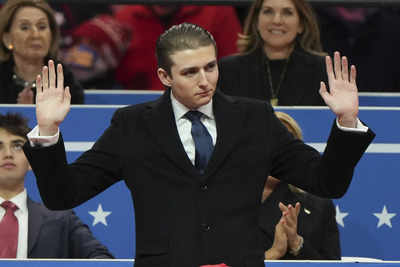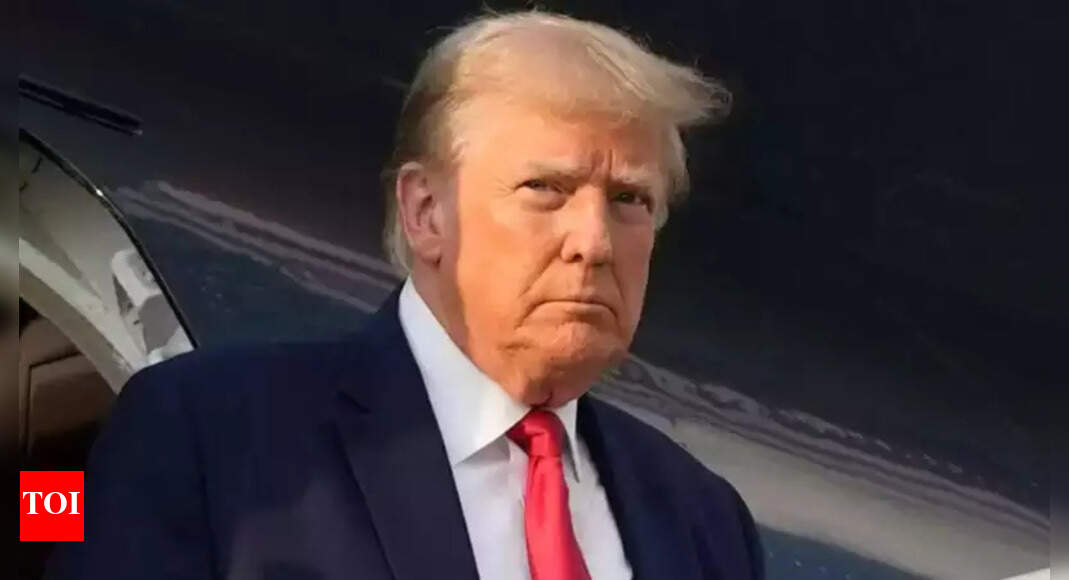Recent claims on social media have sparked discussions about the citizenship status of Barron Trump, youngest son of Donald Trump, and Usha Vance, wife of Vice President-elect JD Vance, under a proposed order by the former president. These assertions, widely circulated on platforms like Facebook, TikTok, and X (formerly Twitter), suggest that the individuals might lose their US citizenship under Trump’s plan to end automatic birthright citizenship.
Barron Trump’s Citizenship Remains Intact
The claim that Barron Trump is “not a citizen” due to his mother’s citizenship status at the time of his birth is false. Barron Trump, born March 20, 2006, in New York, is a US citizen by birth. At the time of his birth, his father, Donald Trump, was a natural-born US citizen, and his mother, Melania Trump, was a lawful permanent resident who had held a green card since 2001.
Trump’s proposed policy, outlined in his Agenda 47 platform, seeks to reinterpret the 14th Amendment to end automatic citizenship for children born in the US to parents who are unlawfully present or temporarily in the country. However, the policy would not be retroactive and would apply only to children born after its implementation. Therefore, Barron Trump’s citizenship is not subject to change under this proposal.
Usha Vance’s Citizenship Secure
Similar concerns were raised about Usha Vance, an Indian-American and the wife of Vice President-elect JD Vance. Claims surfaced that she might lose her citizenship because her parents were not US citizens at the time of her birth. Usha Vance, born in California, is a US citizen by virtue of being born on American soil.
The executive order proposed by Trump includes provisions targeting children born to individuals on temporary visas or who are unlawfully present. However, it explicitly states that the order would apply only to births occurring 30 days after its issuance, leaving the citizenship of those already born unaffected.
Implications for the Indian Diaspora and Legal Challenges
While the citizenship status of individuals like Barron Trump and Usha Vance is secure, the proposed policy has raised significant concerns within the Indian diaspora and other immigrant communities. The executive order aims to end birthright citizenship for children of certain non-immigrant visa holders, including H-1B and F-1 visa holders, unless one parent is a green card holder or US citizen.
This policy shift directly impacts over one million Indians in green card backlogs, as their children, previously assured of automatic citizenship, would now face uncertainty. Immigration attorneys argue the order contradicts the 14th Amendment, which has long guaranteed citizenship to nearly all individuals born on US soil. Legal experts predict the policy will face constitutional challenges, likely reaching the Supreme Court.
Broader Legal and Social Repercussions
Critics have highlighted potential gender biases in the policy language and its ramifications for immigrant families. While some view the order as a necessary step toward stricter immigration control, others see it as punitive toward law-abiding immigrants. The controversy underscores ongoing debates about the interpretation of the 14th Amendment and the future of US immigration policy.
As the legal battles unfold, the proposed policy serves as a pivotal moment in defining citizenship and the rights of those born on US soil.




